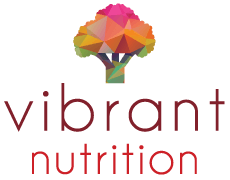October 2nd, 2018
What’s in Your Genes? Everything you need to know about Genetic Testing
You’ve probably heard a lot about genetic self-testing kits lately. These are NOT the genetic tests your doctor administers, but rather tests you can do yourself and send away to be analyzed for an insider track to what makes you, well, YOU. In the past few years, tons of companies globally have been popping up offering to analyze your DNA for fitness, disease-risk, ancestry, or other purposes. Genetic testing is appealing because you can find out so much about yourself that was previously unavailable. Your individual and unique DNA is analyzed, so the results you receive are unique to you. BUT there are some VERY important things to remember before you spit into a tube. So, here is the breakdown of what genetic testing is and different types of tests out there, how they work, and the pitfalls and limitations of these tests, so that you can decide if it’s right for you!
What is genetic testing?
Genetic self-testing analyzes our DNA, which is a unique fingerprint containing millions of genes that determine different traits about us. This includes everything from eye colour and physical appearance to the way we metabolize foods or respond to stress. Mutations (changes), also called poly-morphisms (CSNIPS in the code if you want to get technical!) in those genes have been shown to be associated with an increased risk of acquiring some conditions and illnesses. Our DNA is made up of genes received from our parents, and ancestors, so some test kits look at the location, race, nationality and kinship aspects of your make-up. Remember genetic self-testing doesn’t isn’t showing you HOW your habits are affecting you, it shows you the blueprint you are working with. Your habits can, however, affect HOW that blueprint is expressed. Think of it like hiring an interior designer for your house; different styles and patterns could create completely different spaces in the same house!
What are the limits?
The human genome- aka a map of all the genes that we have, is still a process of discovery. Research and testing are still ongoing to discover which genes, or variations of genes, are associated with different traits or disease states. Much of the testing that is done now will test for specific genes that have been thoroughly studied. Some companies that provide these self-tests will also keep your information on file in case new discoveries are made in that area. They might, however, also sell your data to marketing, advertising or other industries. This is happening now with some companies. You must read the very very fine print before you swab! Another limit is that your lifestyle habits, emotional health and relationships will all change and impact the expression of that blueprint, so while it can give you a clue, it can definitely NOT predict the future! (a.k.a. Being at risk for a disease does NOT mean you will get it).
Side note: The genetic self-test kit that We at Vibrant Nutrition run in our clinic, Nutrigenomix, certainly does not keep, store or sell your data (it’s double encrypted and destroyed, so they don’t even know it’s you!), is accurate and perfect for questions about metabolism, nutrition related deficiencies and advantages and fitness!!!
Types of Testing
In the last few years DNA testing has blown up to include much more than traditional fingerprint or disease risk tests that we associate it with. Here are the main categories of currently available genetic tests.
Disease/Specific Condition
These kits test for your genetic risk of developing common diseases such as Macular Degeneration, Celiac’s Disease or Alzheimer’s. Often conditions such as these are associated with a specific gene mutation that is present in those who have already developed the illness. Risk is an important term here though- not everyone who has the gene will go on to develop these diseases. It can, however, be helpful to know so that you can make lifestyle changes appropriately to reduce your risk. (Ex- if you’re at risk of Macular Degeneration, quitting smoking so you don’t go blind!).
Ancestry
This has become immensely popular recently by the brand Ancestry and Me. These tests compare your DNA to older DNA samples to find clues about your ancestry in terms of geographical origin, race, and connections between families (royalty is a popular one). Interestingly, when some tests were compared to each other in a small study in the US, the same DNA used for all kits showed different ancestral roots for the same genetic material. That is suspect and needs to be investigated! Also, the data you are handing over in these self-tests, especially in the U.S. are being mined by marketing companies, advertisers and the government to track health, and lifestyle patterns, migration around the world. If that’s a problem for you, be careful with which companies you’re using.
Kinship
These are similar to ancestry but apply specifically to another person. Two DNA samples are compared to determine similarities. The most well-known of these types of tests are paternity tests, but they can determine a number of associated family relationships. These tests are what you may remember watching on the classic daytime trash-talk show Maury Povich “he’s not the father” tests you have watched for the past 20 years on T.V

